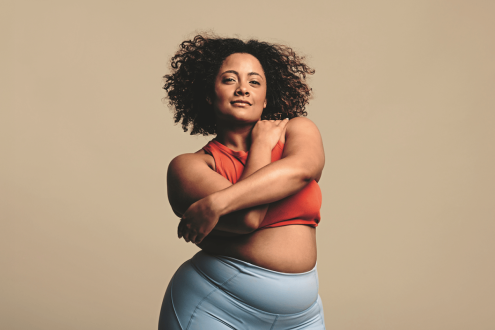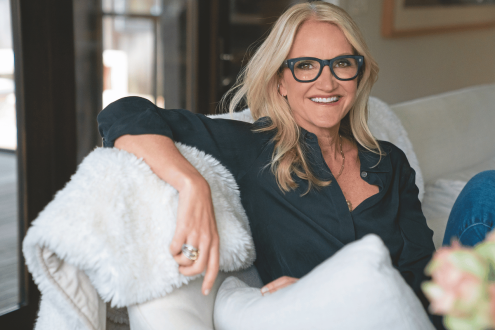Brain Food Column Month Twelve: With feeling
In the final instalment of Psychologies’ Brain Food column, Amerley Ollennu looks back over her efforts in the last 12 months to help change the way we think about food once and for all

What a year this has been. Through the highs and the lows, this challenge to change the way I think about and use food has put me on a path of self-discovery and, as we all know, knowledge is power. ‘It’s not unusual for people
to feel that self-reflection and contemplation are a little self-indulgent.
Our British sensibility has a “just get on with it” attitude engrained within that often leaves us detached from ourselves,’ sayspsychotherapist Sophie Boss, one of the women behind Beyond Chocolate, the UK’s leading no-diet community.
The challenge
After months of therapy, nothing was more productive for me than working with the Beyond Chocolate team. Sophie specialises in diet psychology, and my one-on-one sessions with her quickly got to the crux of my issues, which were complex indeed.
Like all emotional eaters, I tend to push down my emotions so that I don’t have to actually feel them and, although I’ve been working on speaking up, I still find that I get uncomfortable expressing myself when I am angry, sad or annoyed. Instead, I attempt to ignore my feelings or try to rationalise them.
Sophie challenged me to feel my feelings and realise that the world wouldn’t come to an end if I did. The perfectionist in me wasn’t so sure. I’m incredibly self-critical and, for an emotional eater, the more self-critical you are, the more you will eat as a way of dealing with the disappointment you feel towards yourself.
‘Eating to avoid a feeling you’re not comfortable with or can’t change comforts, but then leaves us with something to feel bad about – the eating – which we tell ourselves we can change. So our eating is also about power and powerlessness,’ believes Sophie.
The experience
Although I’d worked on all of this during the year, I realised that at times of acute stress, my default setting was still to shut down, which soon resulted in me feeling out of tune with myself. So when Sophie asked me how I was feeling
at the beginning of each session, it took some coaxing for me to properly figure it out.
Mostly I felt anxious all the time – about what I was eating, about my relationships with others, my career and my future.
A session with food coach Audrey Boss (Sophie’s sister), highlighted this even further. She asked me what I thought a healthy meal consisted of. I answered, ‘fish and vegetables’. Of course, there are lots of other healthy foods I could have mentioned, but in that moment, those were the only ones I could think of that didn’t come with conditions (yes to fruit, no to fruit juice; yes to carbohydrates but no to all refined versions… and so it goes on).
Audrey pointed out that unless I’m eating those two things, then I don’t believe I’ve eaten well and am more than likely to feel anxious when eating anything else. This resonated loud and clear, and was the wake-up call I needed.
The result
Over the past 12 months what I’ve learnt is that there are no quick fixes when it comes to emotional eating. It has taken years for me to get into the habit of comfort-eating as a crutch, and this year is just the beginning of making
a lifelong change in the other direction. I understand now that there are many other ways in which I can deal with my emotions, and not because I want to look a certain way but because I want to feel a certain way – happy.
More inspiration:
Sophie Boss, psychotherapist, author and co-founder of Beyond Chocolate, says the first step to combating emotional eating is to deal with our feelings
Photograph: iStock









